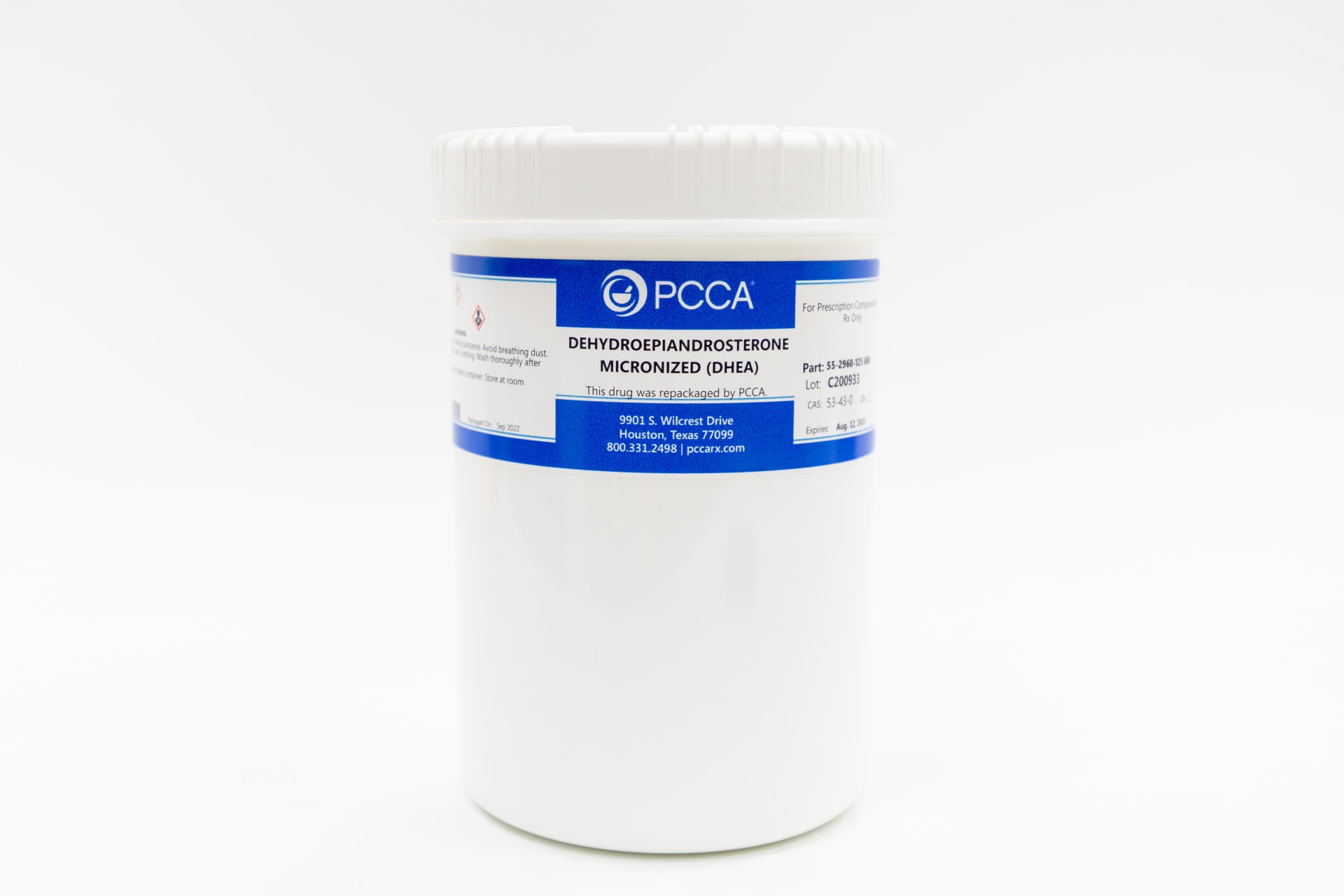
Dehydroepiandrosterone (DHEA) might sound like a mouthful, but this hormone plays a big role in our bodies. Produced by the adrenal glands, DHEA helps make other hormones like estrogen and testosterone. It's often called the "mother of all hormones" because of this. As we age, DHEA levels drop, which can affect mood, energy, and overall health. Some people take DHEA supplements to combat these changes, but it's important to know the facts before diving in. What exactly does DHEA do? How does it impact our health? Let's explore 44 intriguing facts about this powerful hormone to understand its significance better.
Key Takeaways:
- DHEA, the "mother hormone," declines with age and affects bone density, mental health, and athletic performance. It's crucial for hormonal balance and may have potential medical uses.
- DHEA supplements can boost energy, mood, and physical performance, but may also cause side effects like acne and mood swings. It's a fascinating hormone with wide-ranging effects.
What is Dehydroepiandrosterone (DHEA)?
Dehydroepiandrosterone, commonly known as DHEA, is a hormone produced by the adrenal glands. It plays a crucial role in the production of other hormones, including testosterone and estrogen. Here are some fascinating facts about DHEA.
- DHEA is often referred to as the "mother hormone" because it serves as a precursor to male and female sex hormones.
- The body produces the highest levels of DHEA in the early 20s, with levels gradually declining with age.
- DHEA supplements are popular among those looking to boost energy, improve mood, and enhance physical performance.
- The hormone is also produced in small amounts by the brain and skin.
- DHEA levels can be influenced by factors such as stress, diet, and overall health.
Health Benefits of DHEA
DHEA is believed to offer various health benefits, from improving bone density to enhancing cognitive function. Let's explore some of these benefits.
- Studies suggest that DHEA may help improve bone density, reducing the risk of osteoporosis.
- Some research indicates that DHEA can enhance cognitive function, particularly in older adults.
- DHEA has been linked to improved mood and reduced symptoms of depression.
- The hormone may help boost the immune system, making the body more resistant to infections.
- DHEA is thought to improve skin health by increasing collagen production and reducing signs of aging.
DHEA and Athletic Performance
Athletes and fitness enthusiasts often turn to DHEA supplements to enhance their performance. Here are some facts about DHEA's role in sports and fitness.
- DHEA is believed to increase muscle mass and strength, making it popular among bodybuilders.
- The hormone may help improve endurance and reduce fatigue during physical activities.
- Some athletes use DHEA to speed up recovery after intense workouts or injuries.
- DHEA is banned by many sports organizations due to its potential performance-enhancing effects.
- Despite its popularity, the effectiveness of DHEA in improving athletic performance remains a topic of debate among experts.
DHEA and Aging
As people age, DHEA levels naturally decline. This decline has been linked to various age-related conditions. Here are some insights into DHEA's role in aging.
- Lower DHEA levels are associated with an increased risk of cardiovascular diseases.
- Some studies suggest that DHEA supplementation may help improve memory and cognitive function in older adults.
- DHEA is thought to play a role in maintaining muscle mass and strength as people age.
- The hormone may help reduce the risk of age-related bone loss and fractures.
- DHEA levels are often used as a biomarker for aging and overall health.
DHEA and Mental Health
DHEA's impact on mental health has been the subject of numerous studies. Here are some key findings.
- DHEA may help reduce symptoms of anxiety and improve overall mental well-being.
- The hormone has been linked to improved mood and reduced symptoms of depression.
- Some research suggests that DHEA can enhance cognitive function and memory.
- DHEA levels are often lower in individuals with chronic stress or mental health disorders.
- Supplementing with DHEA may help improve mental clarity and focus.
DHEA and Hormonal Balance
DHEA plays a crucial role in maintaining hormonal balance in the body. Here are some facts about its role in hormone regulation.
- DHEA serves as a precursor to both testosterone and estrogen, helping to maintain hormonal balance.
- The hormone can help alleviate symptoms of menopause, such as hot flashes and mood swings.
- DHEA may help improve libido and sexual function in both men and women.
- Some studies suggest that DHEA can help regulate menstrual cycles in women with irregular periods.
- DHEA levels can be influenced by factors such as stress, diet, and overall health.
Potential Side Effects of DHEA
While DHEA offers various health benefits, it is important to be aware of potential side effects. Here are some possible side effects of DHEA supplementation.
- High doses of DHEA can lead to acne and oily skin.
- Some individuals may experience hair loss or unwanted hair growth.
- DHEA supplementation can cause mood swings and irritability in some people.
- The hormone may interfere with sleep patterns, leading to insomnia or disturbed sleep.
- Long-term use of DHEA supplements can increase the risk of hormone-related cancers.
DHEA in Medical Treatments
DHEA is used in various medical treatments due to its wide range of effects. Here are some ways DHEA is utilized in medicine.
- DHEA is sometimes used to treat adrenal insufficiency, a condition where the adrenal glands do not produce enough hormones.
- The hormone is being studied for its potential role in treating autoimmune diseases such as lupus.
- DHEA may be used to improve bone density in individuals with osteoporosis.
- Some research suggests that DHEA can help improve symptoms of chronic fatigue syndrome.
- DHEA is being investigated for its potential role in treating sexual dysfunction in both men and women.
Interesting Facts About DHEA
Here are some additional interesting facts about DHEA that you might not know.
- DHEA was first discovered in the 1930s by researchers studying adrenal gland function.
- The hormone is also found in some plants, such as wild yam and soy.
- DHEA levels can be measured through blood tests to assess overall health and hormone balance.
- Some people use DHEA supplements as part of anti-aging regimens to maintain youthful vitality.
Final Thoughts on DHEA
DHEA, a hormone produced by the adrenal glands, plays a crucial role in various bodily functions. From boosting the immune system to enhancing mood, its benefits are vast. However, it's essential to approach DHEA supplements with caution. While they can offer significant health advantages, improper use may lead to adverse effects. Always consult with a healthcare professional before starting any new supplement regimen. Understanding the balance and function of DHEA can help you make informed decisions about your health. Whether you're looking to improve your energy levels, support your immune system, or enhance your overall well-being, DHEA might be a valuable addition to your health routine. Stay informed, stay healthy, and always prioritize your well-being.
Frequently Asked Questions
Was this page helpful?
Our commitment to delivering trustworthy and engaging content is at the heart of what we do. Each fact on our site is contributed by real users like you, bringing a wealth of diverse insights and information. To ensure the highest standards of accuracy and reliability, our dedicated editors meticulously review each submission. This process guarantees that the facts we share are not only fascinating but also credible. Trust in our commitment to quality and authenticity as you explore and learn with us.


